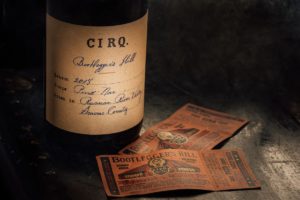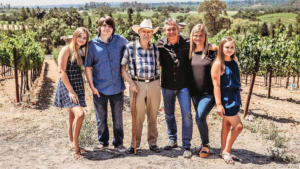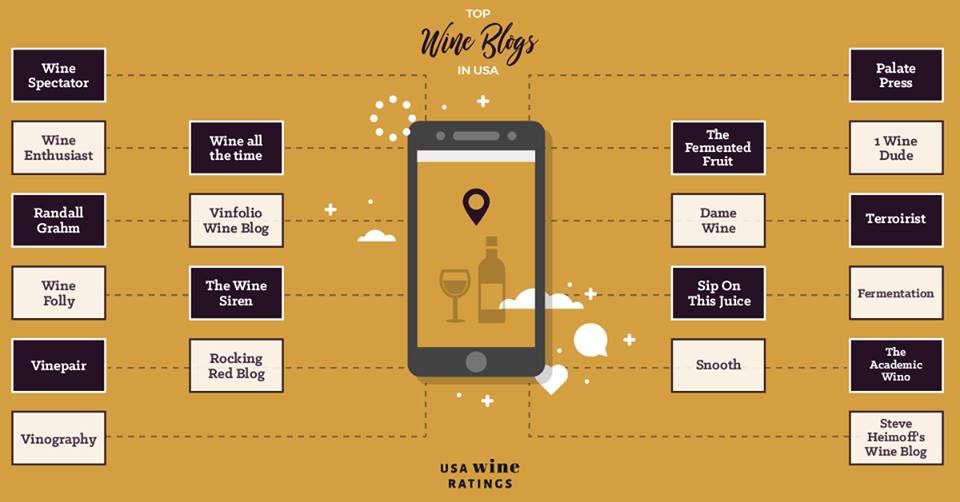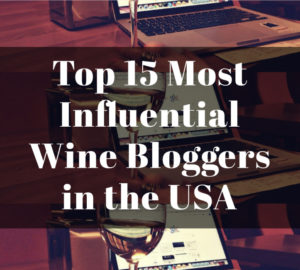
When I heard about just a little bit of the story of Michael Browne, winemaker and co-founder of the iconic, award-winning Kosta Browne winery, who had been in the circus earlier in life, I had to jump at the chance to be given a digital copy of his Pinot Rocks book as I wanted to know how that journey happened. Well, I got a lot more than I bargained for as the book gripped me with its raw honesty of an unconventional childhood that is initially rooted in the stress and fear that surrounded his mentally-ill mother. He does not go into the details of her condition but he writes about having to deal with her irrational paranoia, like when she asked a young Michael, who had been in the house making a mess in his room, and when he couldn’t tell her who had been in the house, as it was just him making the mess in his room, she would do unsettling things like pour a bowl of milk over his head as she was sure he was lying to her. His early childhood had been very lonely because he unknowingly at the time isolated himself as he didn’t want others to meet his mother because he didn’t know how to explain her behavior and words; even though desperate for a connection with other people, the deep-seated fear in his unconscious mind kept him from getting into his school’s extracurricular activities as his parents never showed up to his school and it was just too hard to keep explaining why they were never around.
As I first started to read about Michael’s unexpected childhood, I started to think about my own as there were a few similarities. I too had a mother with a lot of issues, although drugs played a part with her issues but maybe she was mentally ill before the drugs – I will never know. My mother had very little to do with my life, actually she didn’t speak that much to me as she was more concerned with just getting money from people to continue her “lifestyle” and that very much is her relationship with anyone – either she gets money from you, or uses you to get money out of others; if neither is possible then she wants nothing to do with you. My stepfather met my mother while going through a mid-life crisis while partying and he immediately was sucked in by her but through time he just went into a deep dark hole of depression as he didn’t want to realize that he had married someone who was just out to use him; and so I spent all of my childhood taking care of myself, living in a home where no one spoke to each other and having great difficulty finding a way to connect to other children.
Of course there are many differences between our situations as Michael’s mother’s issues were mainly linked to mental illness which now has a lot less of a stigma than it had in the past. When he was ten she left to live with her mother as it was probably too much for her to be a mother or a wife. His father and mother met when they were young and Michael remembers his mother being a brilliant woman who obviously had issues navigating some parts of life. Once his mother left, his father became very depressed, as anyone would expect, and Michael very much appreciates his father trying to battle his depression while working and being a single parent.
Many of us think about the traumatic events that shape us when we are a teenager but often times we are only left with shards of images from our really young adolescence, even though some experts will talk about how stress and fear can be hardwired into us at an age that we can’t even remember – Michael’s childhood, especially when his mother lived with them, was filled with a constant state of living in a stressful environment that often had his parents fighting and his mother making disturbing comments based on her intense paranoia. Despite the differences in our backgrounds, I know that feeling of being a kid that is always in stress and fear mode and although such issues become even more intense in isolation, one feels trapped as how could you ever explain your home life when you yourself can’t even make sense of it?
It is quite powerful how Michael starts the book as it allows the reader to understand how he was shaped as a kid that eventually explains what really drove him in life. Ultimately, he was seeking a place that felt like home, a family and an ability to effortlessly connect with those around him.

Photo Credit: Eric Wolfinger Photography
But writing this book was anything but easy as he said he had never really talked about his childhood so openly but his editor said he needed to open up about his life and it took him four and a half years to finally take that leap of faith. He didn’t want to paint anyone in a bad light as he realized that his mother had her issues and his father was a good dad placed in a difficult position. But Michael explained that something that took so long to put down on paper became “freeing” for him as not only has he gotten a lot of great feedback from other people who appreciate his honesty but it lifted a weight from him.
Circus Lessons
It may seem odd that a co-founder of such a famous winery in Sonoma County, California, would directly relate the lessons he learned while being in a circus growing up in Wenatchee, Washington State, to his success in the wine business but as I got through the story, it made sense because getting to a place of having your own winery when you have no money requires an unorthodox journey. There are a lot of devastating hits that will most certainly come your way in the wine business, whether you are in debt up to your elbows and ready to lose your house or in Michael’s case, dealing with the blow backs and complications of having a very successful winery gaining numerous high scores and accolades and learning to navigate something that becomes bigger than one can dream.
Michael was only 12 years old when he joined his town’s local circus as one of his buddies talked him into it as a cool thing to do and they could just move mats around. But then he wanted to learn how to ride the unicycle and soon he was on the unicycle team and then he wanted to eat fire so the fire eaters taught him and then he was on the fire eating team but there was “no way” he could do the high-wire act or be on the trapeze… well the next thing he knew he was hanging upside down on the trapeze catching people flying through the air as well as riding a bicycle on the wire 25 feet up in the air. It was a great lesson over and over again that although Michael felt he didn’t have what it took to gain any of these skills, it was just a matter of practice and making mistakes over and over again and each time getting back up to do it with the intention of learning the lesson that the mistake will teach you.
Some of those mistakes were quite terrifying, like having his head “engulfed” in flames when it was a windy day while attempting the fire eating act and even more horrifying is when he was performing the high-wire act and it collapsed and the guy who went on it right before him fell into the net so hard he bounded out, hit the ground and was knocked unconscious. Of course the high-wire incident put him off of wanting to do it again but the leader of the circus, Paul Pugh, who was also Michael’s junior high school principal, approached him after he finished the physically exhausting work of catching people during the trapeze to get him to do the high-wire act again; Michael exclaimed, “I can’t, I’m freaked out and I’m burned out physically” and Paul Pugh simply replied with, “Get up there” and they did it. Michael learned many things from the circus such as the joy of entertaining people and working as a team but no greater lesson than “making mistakes are a good thing” since if you make them enough and get up and try harder each time, you will eventually be able to accomplish things beyond your imagination, even in what seems the worst of times.
The Inklings of a Legendary Winery
Michael knew nothing about the wine business when he first got into it but just like the circus it was a step by step process with first being a bartender, then a waiter, then sommelier and then eventually taking on internships at wineries while supporting himself with restaurant work. Fate would land Michael at John Ash & Co., a high-end Sonoma restaurant that was one of the first that worked with seasonal, local ingredients as well as wines from the region. And it would not only introduce him to great Sonoma wines but that is where he met his future wine partner, Dan Kosta. At one point, Michael interrupted his early work experience in Sonoma County by flying back to his home Washington State, working in a couple of “cool” restaurants in Seattle and then ultimately he got a job at a large wine distribution company as a salesman as he wanted to be in the wine business. Well the job didn’t last long as it really was just about being a salesman and not really about talking about the wines themselves but he did meet a young lady who worked for the company during his first interview and that seemed to be the best thing that came out of working in distribution.
Soon Michael missed Sonoma, as well as all the great wine producers and growers who came into John Ash & Co. and so he asked for his job back from Dan Kosta, who was managing the place, and the plan was that he would also volunteer at a winery called Deerfield Ranch while crashing at a friend’s place. After just a couple of months of dating, he asked that young lady from the distribution company to move to Sonoma with him and to his surprise she said yes. It was a tough time as he and his girlfriend never saw each other and she was out of her element and away from her tight-knit family and so she questioned whether moving to Sonoma was a good idea but Michael painted a picture of them living in a “little bungalow” and making enough to cover their family’s expenses while eating “good food,” having “good friends” and certainly drinking delicious wines but it would probably take ten years; Michael had no reason to think that it would end up that way but he had a feeling.
He ended up working at Deerfield for eight years and learned so much from the owner and winemaker, Robert Rex, who basically taught him by “trial and error” how to do everything in a winery. Michael explains in detail the many “mistakes” that very much drove the point that although a task may seem easy when first described to you, many times it is quite intricate in regards to the right way to do it and considering that Michael found himself overworked with balancing working for a few wineries while trying to start his own brand, there were a few times that he lost thousands of dollars in wine as barrels exploded from too much pressure or when wine was shooting into his face like a fire hose. But just like working in the circus, there was no time to waste, no matter how devastating the failure as there are other things that are much more important than you – the show must go on as many depend on it.
Kosta Browne Wine
As all of us know now, Kosta Browne became a huge success but there was certainly a lot of bad luck, mistakes and obstacles along the way that could have easily pushed it into its demise – a few included almost having the financial rug pulled out from under them by not selling their unfiltered flagship Pinot Noir wine in its second vintage because of a spoilage yeast, Brettanomyces, making the wine undrinkable.
Kosta Browne was started by Michael Browne, Dan Kosta and eventually Chris Costello joined bringing incredible resources from his father and other partners and many investors; it was a “wild ride, a 20 year wild ride,” noted Michael. Dan and Michael used their many years in the restaurant business to help guide them as throughout the years they talked to hardcore Pinot Noir wine connoisseurs before the grape even became popular in the U.S. and they got an idea of what they liked and didn’t like to get an idea of what worked. Also, the idea of giving the customers a great experience was an essential component to both of them and that harkened back as well to Michael’s desire to connect with people and to give them an experience they would never forget. He said most wineries wanted to sell people the minute they walked through the door but he was happy to talk to these visitors for a couple of hours, eat a couple of snacks, drink some wine and find out a little bit about their life’s story and he was happy to work out how to sell them wine later.
He would then extend these small customer visits to inside the winery itself to taste them on a bunch of barrels, which was not as common 20 years ago as it is now, and he would see how blown away they were and it would be a way to get people to open up and share their life as in a sense they felt like you invited them into your home – a home free of judgment because it was all about building relationships with those people who understood and respected your passion. Michael was against large groups coming and going as that was a quick way to move bottles but those situations would never lead to long-term loyalty, let alone a relationship that led to truly knowing one’s customers. Something that was so difficult to Michael when he was younger, connecting to people, seemed to happen with ease once he started working in restaurants and wineries – it was the magical formula of creating an inviting atmosphere that made such connections possible.
Early on Michael said he made big Kosta Browne Pinot Noir wines with higher alcohol by accident as he couldn’t get ahead of the picking schedule and so he was harvesting later than he meant and so he was nervous when “high-end tasters” barrel sampled the wines as he felt it was something that they were not used to tasting. But they liked it because it was elegant yet intense and so he came up with the term “elegant intensity”.
In 2005, their ‘03s were awarded the best lineup of scores for an American Pinot Noir at that time and then things exploded as all of a sudden, all of their wines were sold, and over-sold in some cases, overnight as Kosta Browne had become much bigger than the three men running it. Everyone started writing about them, whether it was professional wine writers or bloggers, some of it was praise and some of it just nasty snark. “I felt like I was in the middle of a stadium, and the stadium lights had been turned on, and they were all pointed directly at us. But when the lights are on you, you can’t see anyone in the audience,” explained Michael in his book. It was certainly too much, too soon as he was still making wine in three different locations: Deerfield’s small winery in Kenwood, a custom crush facility in Santa Rosa and Kosta Browne in Sebastopol as well as Michael having to still make wine for Deerfield as he had to make a living and he was not making enough from Kosta Browne.

Michael loved the challenges of Pinot Noir and through time he moved towards finding balance, elegance and more consistency while making the wine delicious and whether it translates into lower or higher alcohol it doesn’t matter – it is the end result. But what is nice about the book is that he doesn’t try to constantly make himself look good as he is very honest about the reality of the various situations he was put in and at the end of the day he is human like everyone else who was learning as he went as he didn’t have any formal training. As time went on with Kosta Browne, he found himself spending more time in the office and less in the winery and connecting with customers and so around ten years ago it was time to move onto another phase – they sold Kosta Browne. But he wanted to get back to having a small, boutique winery and so as homage to his circus days, he started a winery called CIRQ. that focuses on his main wine love – Russian River Valley Pinot Noir. It is a long story but the partners he brought in to start CIRQ. ended up buying Kosta Browne and CIRQ. got put under Kosta Browne’s umbrella and he decided that he just needed to own CIRQ. directly, and it took him three years, but he was able to buy CIRQ. back and he has slowly been able to build an estate winery and acquire land where they are planting a vineyard. For the immediate future he will work with “spectacular growers” that he has gotten to know over years and he is in “no hurry” as he is happy to make the wine when it is right and to keep being part of the Sonoma wine community. He is just looking forward to connecting with people from all over the world once they are able to travel again and come out to visit him.
A Guaranteed Happy Ending
Michael is happy to encourage young people to shoot for owning a winery of their own if they are willing to put in the hard time of learning with other producers and juggling a lot of jobs just to survive. Looking back, it is quite amazing to think of him and Dan Kosta putting ten dollars of their tip money in a jar at the end of their shifts at John Ash & Co. until they had enough to buy some grapes so they could make wine – it was a long hard road and still many bumps even after they were deemed “successful” but they were in it for the right reason. Michael knew they would never become rich, actually Michael felt lucky when he could support himself and his family with only one job, but the wine world was the only world for him – once he first started to meet wine producers and growers he knew these were his people; and for Michael to finally find his people was a big deal.

There are some people who have such a major influence on kids, especially when they need guidance, and Michael thinks back to the leader of the circus, Paul Pugh, as giving him the foundation to survive everything that was thrown at him. He was such a cherished figure in his hometown of Wenatchee, Washington State, that after Paul Pugh passed, the town erected a bronze statue of him. Through time Michael was able to establish a close relationship with his father who actually lives only ten minutes away and Michael warmly expresses that he has “a wonderful life” as he has “great friends and a great family.”
Additionally, that young lady 20 years ago who took a chance on a guy she only dated for a couple of months to move to Sonoma County, just to crash on someone else’s couch with no guarantees of the future, ended up marrying Michael. “She is downstairs right now and we have three kids and two dogs and she is a wonderful woman,” exclaimed Michael. He finished our conversation by simply saying, “My profession and what I do means a lot to me but it is the personal connections that mean the most to me whether it is friends or family…” he then stopped and let out a laugh thinking back 20 years ago when he decided to ask his future wife to begin this wild journey with him, “but I still can’t believe she said yes.”
In the end it doesn’t matter what happened to Kosta Browne in regards to what Michael deeply desired as he just wanted to belong among people who loved to share great wine with great company… and maybe that is part of the reason it became so successful, because he was willing to make a lot of sacrifices, juggle many jobs and put it all on the line when it came to delivering something that he thought was exciting.
It is a sign that there is justice in the world when looking back at that scared little boy who had a tumultuous home life, desperately wanting to be part of the world, in time becoming a man with a loving family and generous community of growers and producers. And Michael’s second wine journey is just beginning so he can get back to the heart of his passion – small production that connects directly to the consumer. It is a full circle moment, as although he is not going back home, he is going back to the home he had always imagined.










